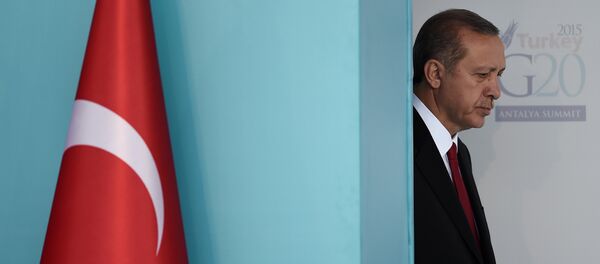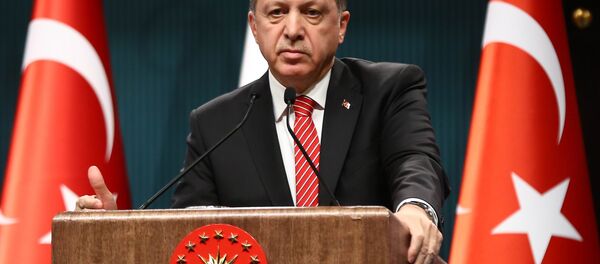"Taking into account the latest developments one cannot but question the true goals behind the work on the new constitution. Will the new basic law serve to create a democratic and constitutional order or is it meant to help a person striving for absolute power?" he asked.
Kaboğlu, a professor of constitutional law, maintains that Erdogan's remarks "directly meddle" with the judicial process, violate the principles of independent legal proceedings and impartiality of the head of the state.

Both journalists were charged with revealing state secrets for "espionage purposes" and aiding a terrorist organization. Their trial is scheduled to begin on March 25.
The case was largely condemned as a human rights violation.
On Sunday, President Erdogan said that he did not "accept or respect" the court's decision since the case had allegedly nothing to do with the freedom of the press. Turkey's Justice Minister Bekir Bozdağ backed Erdogan's stance, saying that the top court's ruling was unconstitutional. He also claimed that it was Erdogan's democratic right to criticize the court's decisions.
"The justice minister could criticize a court's ruling, but he cannot … say that the court's ruling was wrong. From this point of view, we could abolish the courts and establish an organization, which would employ public workers, who would be tasked with delivering rulings based on what the president and the justice minister want," the professor observed.
İbrahim Kaboğlu is part of a group working on Turkey's new constitution.
"Turkey is pushed to an abyss and we can only guess how deep it is," he added. "One cannot but ask what were the people who voted for [Erdogan] thinking. Did they want him to violate the constitution once he came to power or rule in accordance with the basic law?"




